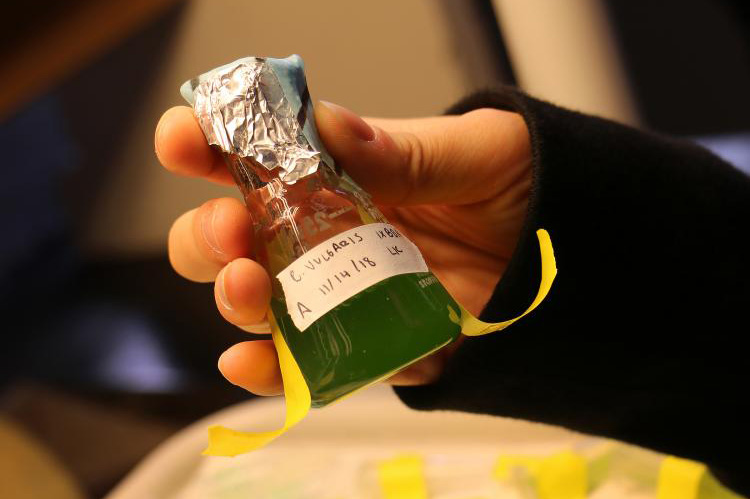Algae is not that exciting to look at. The green blob does not seem like it is up to much, but it’s actually busy all day long — converting sunlight to energy. That energy can be used to create fuel, which is why Cal Poly professors and students are experimenting with the slimy substance.
Electrical engineering Professor Dean Arakaki and two other Cal Poly professors have been working on algae research since Arakaki received a grant from Boeing eight years ago. The goal of their work is to break down the cell structure of the algae through pulsing electric fields. Once the cell structure is broken down, the natural oils of algae which store energy should be able to be extracted.
Arakaki warned that students cannot drop by the lab to fill up on fuel. Right now, the research is still in its beginning stages of isolating the oil, which would then need to be refined into something like crude oil and refined again into gasoline. He said he expects the first stages of research to take a few more years.
Biofuel created from algae could potentially be used for jets and cars, according to Arakaki. Right now, the process is not cost-efficient nor widely used. However, if this algae becomes available to the masses in the future, it could significantly cut down the need for fossil fuels and be a sustainable, eco-friendly energy.
The research team gets new student researchers every year from the Electrical Engineering, Biological Sciences, Food Sciences and Physics Departments. Microbiology sophomore Lilian Kameny has been working on the project since Spring 2018. While she likes working in the lab, she said because the project is a multi-year endeavor, students do not see results quickly.
“You’re not going to make a lot of progress in a year because it’s science, so you have to really work on it,” Kameny said. “But I think that’s why I’m a scientist. I want to solve the problem and even though I know it’s slow going, I’m excited for the answer.”
Arakaki said one of the most exciting things about this research is its interdisciplinary nature.
“Most projects on campus only deal with people in one department, where you don’t get the benefit of other people’s thoughts and strategies,” Arakaki said. “Every year we start with different viewpoints that are very valuable to this project.”

